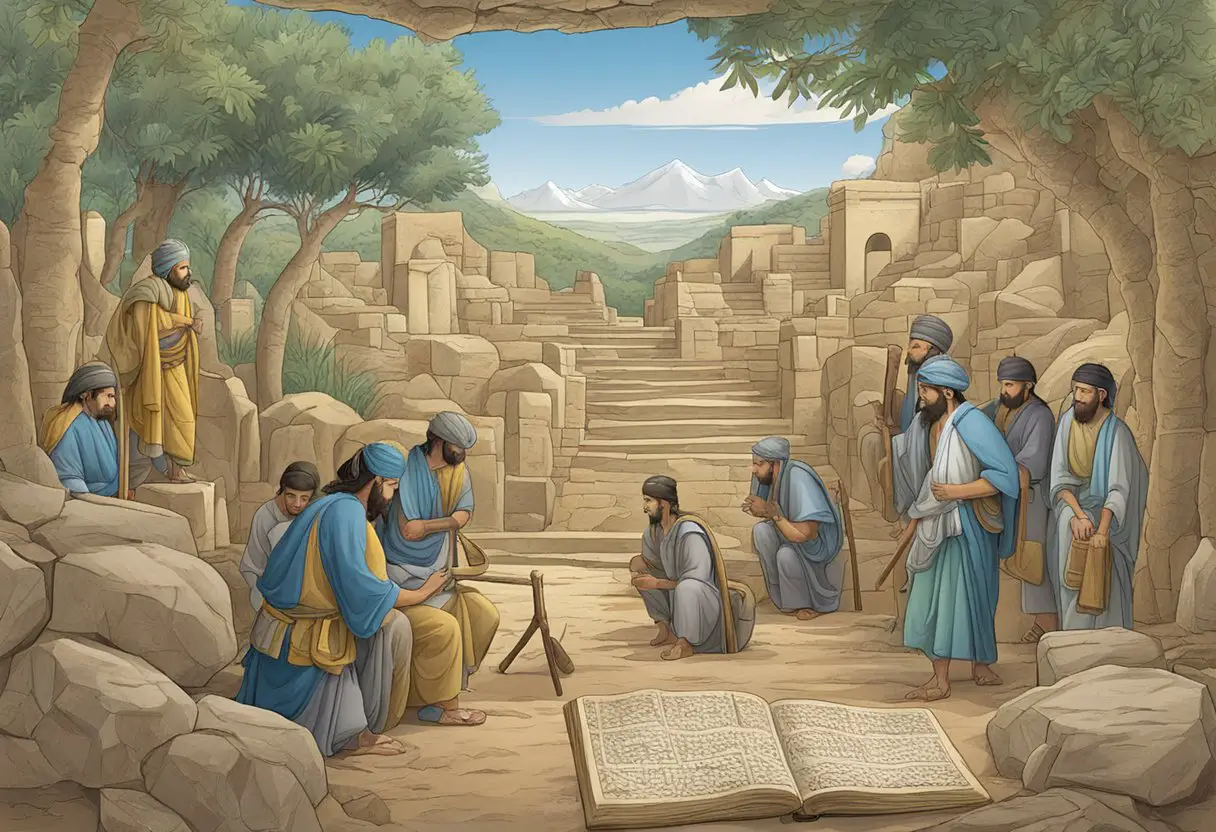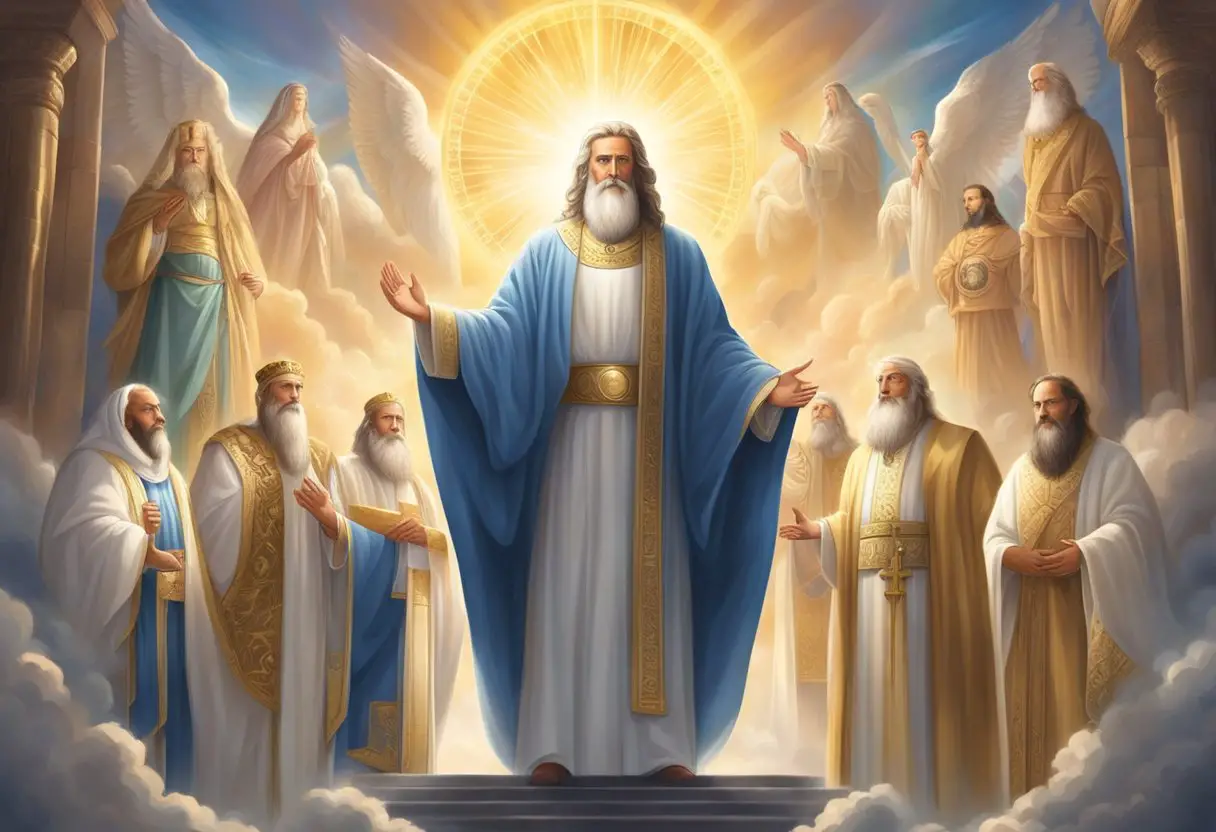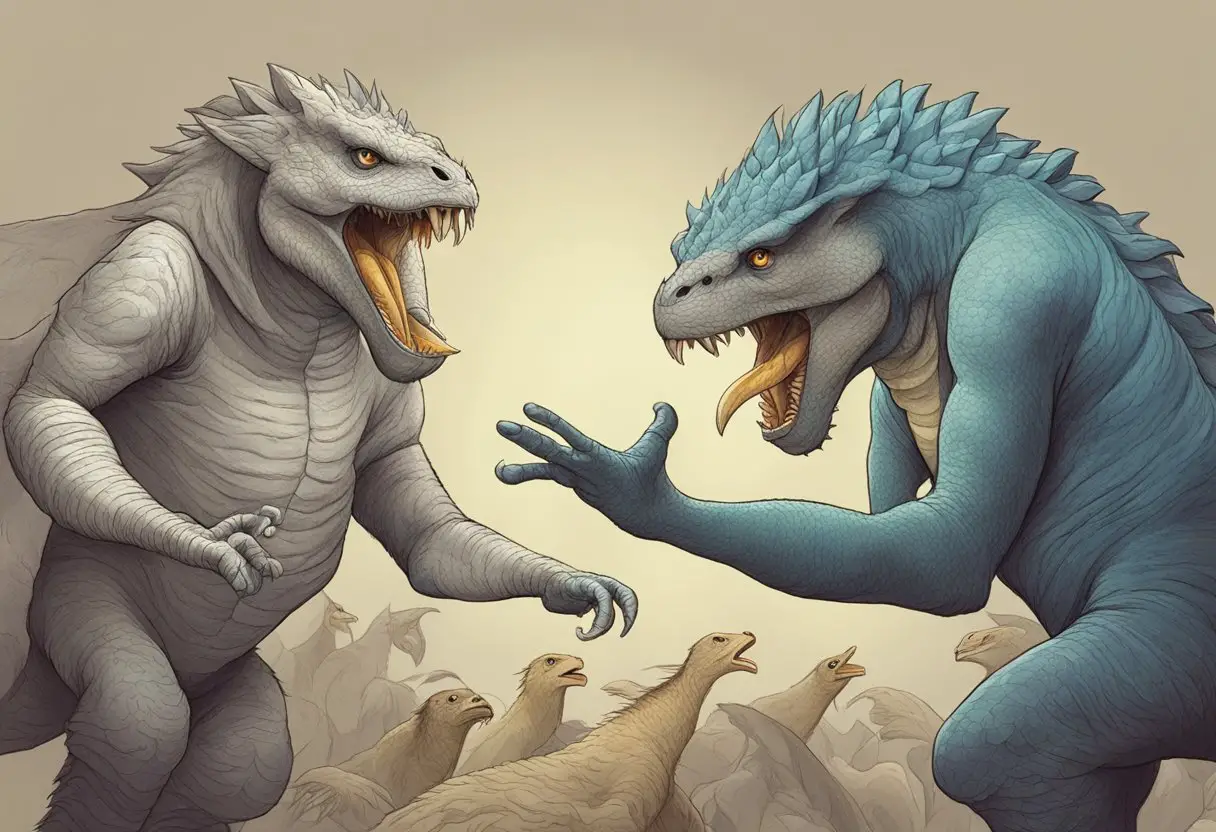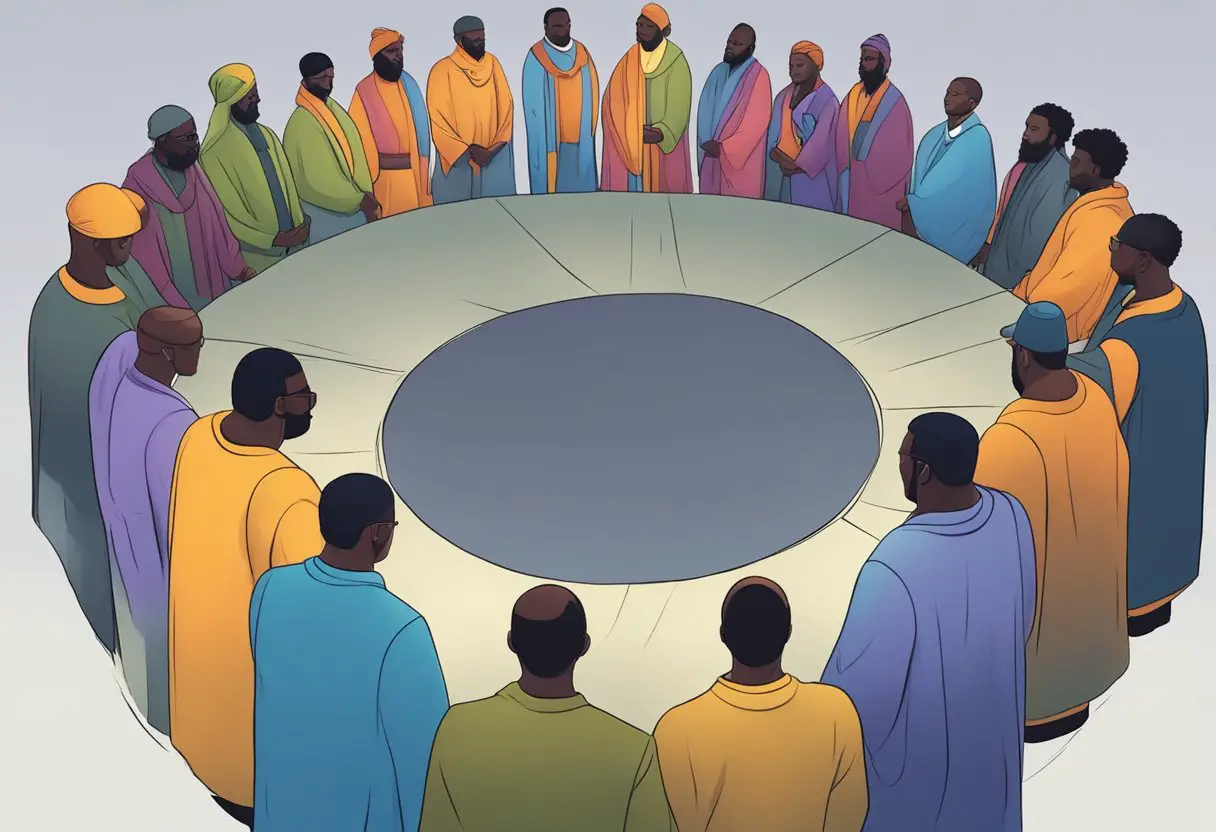Gibborim is a Hebrew word that is used in the Bible to describe people who are valiant, mighty, or of great stature. The term can be translated to mean “mightiest” and is an intensive for gabar, which means “mighty.” In the Hebrew Bible, Gibborim is used to describe David’s noted braves or “mighty men” and is also used to describe a class of beings in Genesis 6:4.
There is some confusion about Gibborim as a class of beings because of the term’s use in Genesis 6:4, which describes the sons of the marriages between the “sons of God” and the “daughters of men.” These beings are called Gibborim, and some scholars believe that they may have been giants or powerful warriors. However, others argue that the term simply refers to the offspring of these unions and does not necessarily imply any special characteristics or abilities.
Despite the ambiguity surrounding the term Gibborim, it remains an important concept in the Hebrew Bible and has been the subject of much scholarly debate and interpretation. In the following sections, we will explore the various meanings and interpretations of this term, as well as its significance in the context of the Bible and ancient Hebrew culture.
Etymology and Definition

Linguistic Origins
The word “gibborim” originates from the Hebrew language, and it is the plural form of the word “gibbor.” The root of the word “gibbor” is “gabar,” which means “to be strong” or “to prevail.” Therefore, “gibborim” can be translated to mean “mighty ones” or “valiant ones.”
In the Hebrew Bible, “gibborim” is used to describe people who are valiant, mighty, or of great stature. The word is often associated with warriors, heroes, and leaders. It is used to describe both men and women who exhibit strength, courage, and bravery.
Contemporary Understanding
In contemporary usage, “gibborim” is often used to describe heroes or champions. It is a term that is used to describe individuals who exhibit exceptional strength, courage, and prowess. The word is often associated with sports, where it is used to describe athletes who exhibit exceptional skill and ability.
However, the term “gibborim” is most commonly associated with the Bible. In the Bible, “gibborim” is used to describe a group of people who are referred to as the “mighty men” or the “heroes of old.” These individuals were known for their exceptional strength and bravery, and they were often called upon to defend their people in times of war and conflict.
Overall, the term “gibborim” is a powerful and evocative term that is used to describe individuals who exhibit exceptional strength, courage, and prowess. It is a term that has been used for centuries to describe heroes, warriors, and leaders, and it continues to be used today in a variety of contexts.
Biblical References

The term “Gibborim” appears in several places throughout the Bible, both in the Old and New Testaments. In this section, we will explore the various references to Gibborim in the Bible.
Old Testament Citations
In the Old Testament, “Gibborim” is used to describe people who are valiant, mighty, or of great stature. In particular, the term is used to describe David’s mighty men, who were renowned for their bravery and strength in battle. These men are mentioned in several places throughout the Old Testament, including 2 Samuel 23:8-39, 1 Chronicles 11:10-47, and 1 Chronicles 12:1-22.
The term “Gibborim” is also used in Isaiah 3:2 and Ezekiel 39:20 to describe warriors or soldiers. In both of these instances, the term is used to describe men who are strong and capable of fighting in battle.
New Testament Allusions
While the term “Gibborim” does not appear in the New Testament, there are several allusions to the concept of mighty warriors or heroes. In Ephesians 6:10-18, for example, Paul urges believers to put on the full armor of God in order to stand against the schemes of the devil. This passage includes references to various pieces of armor, such as the belt of truth, the breastplate of righteousness, and the shield of faith.
Similarly, in Hebrews 11, the author lists several examples of Old Testament heroes who demonstrated great faith and courage in the face of adversity. These include Abel, Enoch, Noah, Abraham, Moses, and many others.
Overall, the concept of “Gibborim” is an important one in the Bible, representing strength, courage, and heroism. While the term itself may not be familiar to modern readers, the idea of mighty warriors and heroes is one that continues to resonate with people today.
Controversies and Debates

Literal vs. Metaphorical Readings
One of the main controversies surrounding the gibborim is the debate between literal and metaphorical readings. Some scholars argue that the gibborim were real-life heroes, while others believe that they were merely metaphorical representations of the ideal Jewish warrior. Those who argue for a literal interpretation point to the fact that the Hebrew word gibborim is used in the Bible to describe actual warriors, such as King David and Samson.
On the other hand, those who argue for a metaphorical interpretation point to the fact that the gibborim are often portrayed in a mythical or legendary manner. For example, the story of David and Goliath, in which David defeats the giant with a single stone, is often interpreted as a metaphor for the triumph of good over evil.
Academic Discussions
Academic discussions surrounding the gibborim have focused on a number of different issues. One of the main debates is over the role of the gibborim in Jewish society. Some scholars argue that the gibborim were military heroes who played a crucial role in defending the Jewish people, while others believe that they were more symbolic figures who represented the ideal Jewish warrior.
Another area of debate is over the relationship between the gibborim and other ancient Near Eastern warrior traditions. Some scholars have argued that the gibborim were influenced by other warrior traditions, such as those of the Assyrians and Babylonians. Others, however, have argued that the gibborim were a uniquely Jewish phenomenon.
Overall, the gibborim remain a subject of much discussion and debate among scholars and religious leaders. While there is no clear consensus on their exact nature and role in Jewish society, they continue to hold an important place in Jewish mythology and religious tradition.
Conclusion

In conclusion, the term “Gibborim” refers to mighty and valiant people of great stature in the Hebrew Bible. The Gibborim were known for their bravery and strength in battle, and were often described as warriors or champions.
The concept of Gibborim is closely associated with the figure of King David, who had a group of “mighty men” or Gibborim who fought alongside him and helped him establish his kingdom. These Gibborim were renowned for their military prowess and were considered some of the greatest warriors of their time.
While the exact nature of the Gibborim is not fully understood, they are often associated with other supernatural entities in the Bible, such as the Nephilim and the Rephaim. Some scholars believe that the Gibborim were a race of giants, while others argue that they were simply exceptional human beings with extraordinary abilities.
Overall, the concept of Gibborim is an important one in the Hebrew Bible, representing strength, courage, and heroism. Whether they were real historical figures or simply mythical characters, the Gibborim continue to capture the imagination of readers and scholars alike, inspiring us with their feats of bravery and their unwavering commitment to their cause.

